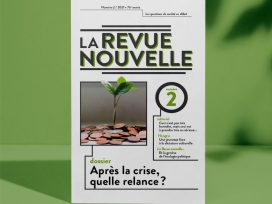

In collaboration with
CAIRN.info
Founded in 2005 by four Belgian and French academic publishers, Cairn.info offers the most comprehensive online collection of French journals in the various fields of humanities and social sciences. Its English interface, Cairn international edition, features tables of contents, abstracts and full-text articles (when available in English), as well as dossiers composed by specialized journalists, who take a look at current events through the prism of francophone scholarly publishing.
Cairn International Edition enables users to search, browse and read this content without speaking a word of French. Thousands of students, scholars and many others browse Cairn every day, with more than one million visits observed each year in non-francophone countries.

Articles

Nietzsche’s critique of science as displaced theology echoes in reservations about epidemiologists’ political role during the pandemic. But if governments and citizens often expect from science a form of deliverance, many others are convinced that science is part of a plot to deceive us. Perhaps the problem lies not with science but belief itself?

Critique of the Recovery Fund
La Revue nouvelle 2/2021
‘La Revue nouvelle’ explains why the ‘Next Generation EU’ COVID recovery fund does not break with the logic of austerity; how the Belgian ‘Plan for Recovery and Resilience’ fails to unite; and what needs to be done to put culture at the centre of the recovery.

Public loss of faith in science
Esprit 3/2021
A year into the COVID-19 pandemic, a public whose freedom has been dictated by science is showing signs of scepticism. ‘Esprit’ examines the vexed relations between science and public opinion when scientific truth no longer inspires unquestioning trust.

Home in the interstices
Culture & Démocratie Special Issue 2020
The Belgian journal Culture & Démocratie on notions of ‘home’: Anna Tsing questions perceptions of security after imperial extractivism; Toma Muteba Luntumbue considers the plurality of contemporary collective identity; and Hamedine Kane writes on exile.